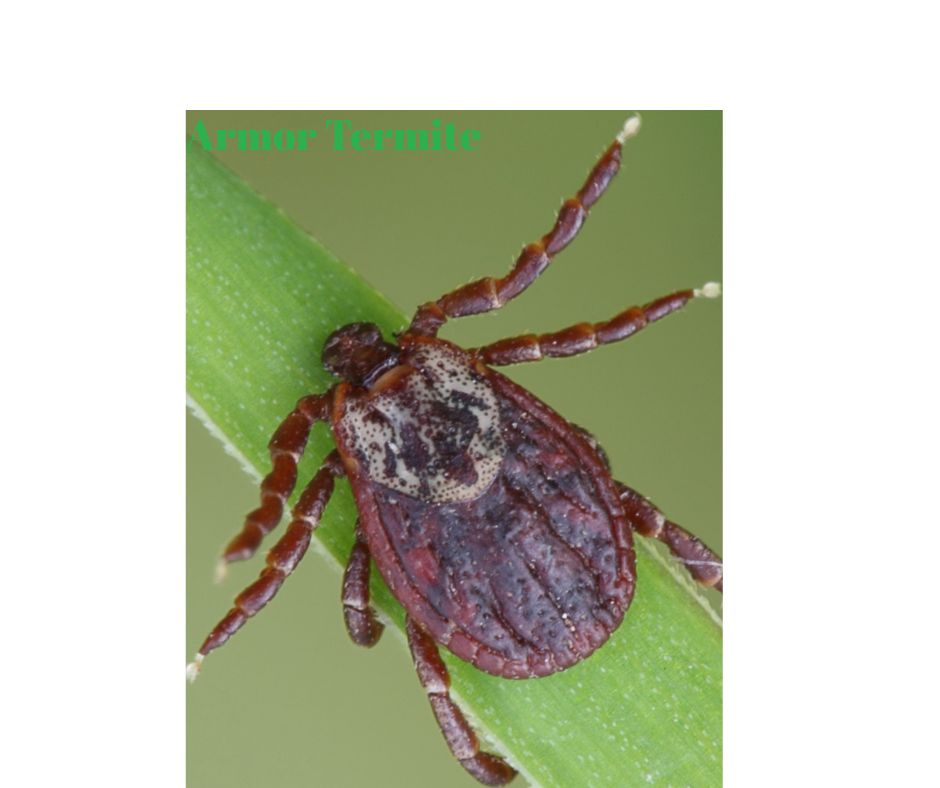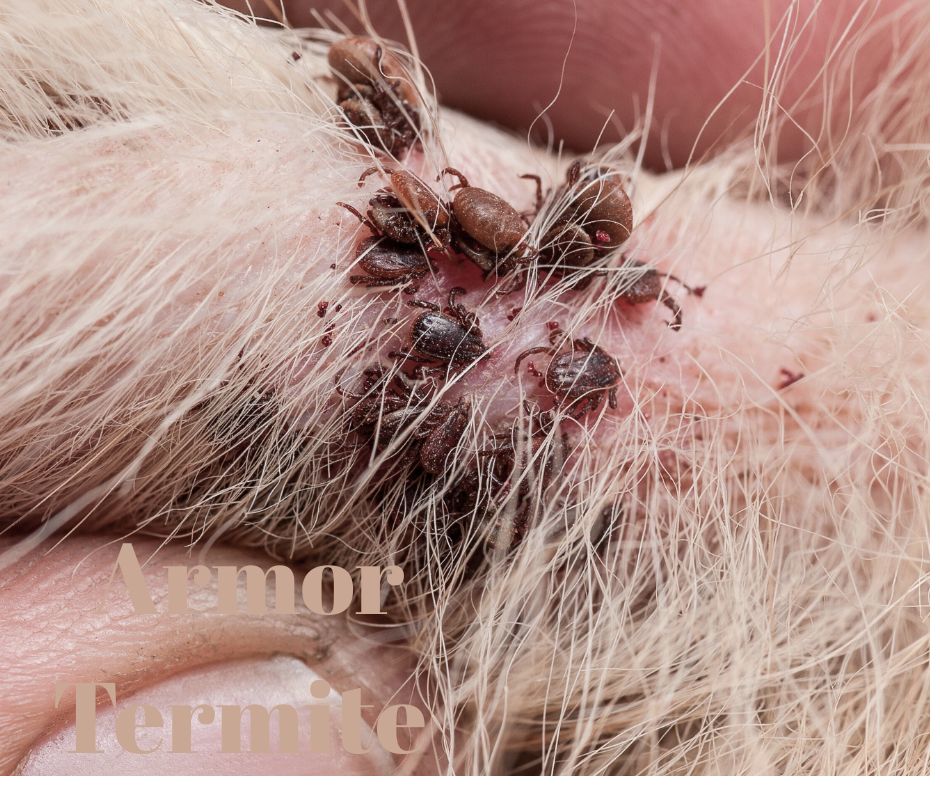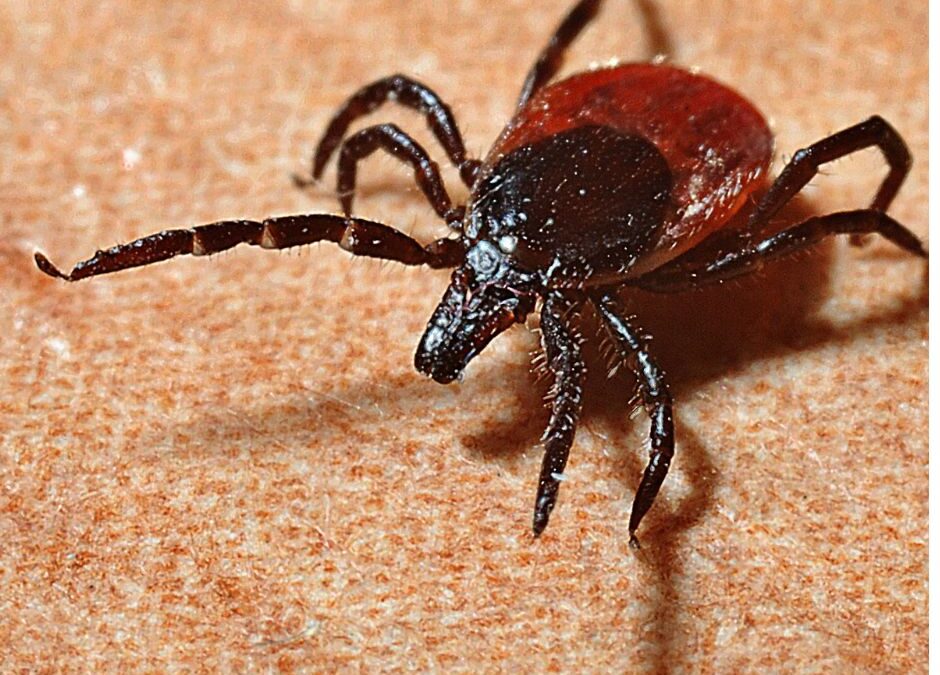As temperatures rise and outdoor activities ramp up, so does the risk of encountering one of Tennessee’s most troublesome pests—ticks. These small but dangerous parasites are more than just a nuisance. Some species in Tennessee are capable of spreading serious diseases, such as Rocky Mountain Spotted Fever, Ehrlichiosis, and even red meat allergies. At Armor Termite and Pest Control, we’re here to help you protect your family, pets, and property from the risks associated with ticks.
Understanding Ticks and Their Life Cycle
Ticks are external parasites that feed exclusively on blood from mammals, birds, and reptiles. Their life cycle includes four stages: egg, larva (6 legs), nymph (8 legs), and adult. Each feeding stage typically requires a different host, which can include anything from rodents and deer to domestic pets—and humans.
Ticks attach to their hosts using specialized mouthparts that pierce the skin and allow them to feed undetected for days. Many tick-borne illnesses are transmitted only after the tick has been attached for 24 hours or more, making early detection and removal critical.

Common Tick Species in Tennessee
What types of ticks are most common in Middle Tennessee?
In Mt. Juliet, Hermitage, Donelson, and the Greater Nashville area, the four ticks you’re most likely to see are:
| Tick Species | Common Locations in Mt. Juliet / Nashville | Main Concerns / Diseases |
|---|---|---|
| Lone Star Tick | Wooded edges, brushy fence lines, along trails at Charlie Daniels Park | Alpha-gal Syndrome (red meat allergy), Ehrlichiosis, STARI |
| American Dog Tick | Tall grass, field edges, greenways, unmaintained lots | Rocky Mountain Spotted Fever |
| Brown Dog Tick | Kennels, dog beds, garages, indoor cracks and crevices | Can infest homes; dog-specific diseases |
| Blacklegged Tick (Deer Tick) | Leaf litter, shady woods, along lake and creek edges (Percy Priest, Old Hickory) | Lyme Disease, Anaplasmosis, Babesiosis |
Each species looks and behaves a little differently, but all of them can carry disease. The Lone Star Tick is especially aggressive in Wilson and Davidson Counties and is linked to Alpha-gal Syndrome, a serious red meat allergy.
When are ticks most active in Tennessee?
Because our climate in Middle Tennessee is relatively mild, ticks can be active anytime temperatures are above ~40°F—even on a warm winter day in Mt. Juliet.
Here’s a simple seasonal activity guide for homeowners searching “when are ticks bad in Tennessee”:
| Season | Activity Level | What Homeowners Notice Around Mt. Juliet & Nashville |
|---|---|---|
| Early Spring (Mar–Apr) | High | Nymph and adult ticks active on greenways, parks, and in backyards |
| Late Spring–Summer (May–Aug) | Very High | Peak season for Lone Star and American Dog Ticks |
| Fall (Sep–Nov) | Medium–High | Deer ticks remain active in leaf litter and wooded edges |
| Winter (Dec–Feb) | Low–Medium | Blacklegged ticks can still bite on warm days (>40°F) |
Because of this year-round tick activity, consistent tick prevention and yard treatments are strongly recommended for Mt. Juliet TN tick control.

Tick-Borne Illnesses in Our Region
Tennessee’s climate and habitat make it a hotspot for several tick-borne illnesses:
- Rocky Mountain Spotted Fever: Early symptoms include fever, rash, and muscle aches. Left untreated, it can become life-threatening.
- Ehrlichiosis: Causes flu-like symptoms and can be especially serious in children and those with weakened immune systems.
- Lyme Disease: Less common in Tennessee, but still a concern, especially for those traveling to or from other regions.
- Alpha-gal Syndrome (Red Meat Allergy): Linked to bites from the Lone Star tick, causing allergic reactions to beef, pork, and lamb.
How to Prevent Tick Bites
Personal Protection:
- Avoid walking through tall grass, brush, and uncut fields.
- Stick to the center of mowed trails.
- Use EPA-approved repellents containing 20–30% DEET on exposed skin.
- Treat clothing and gear with permethrin.
- Wear light-colored clothing to spot ticks easily; tuck pants into socks and boots.
- Check yourself, your children, and pets for ticks every 2–3 hours when outdoors and again at home. Pay special attention to behind the ears, neck, hairline, waist, and legs.

Pet Protection
- Use tick prevention products recommended by your veterinarian, such as collars, topical treatments, or oral medications.
- Check pets thoroughly after they’ve been outdoors—ticks can hitch a ride on your pets and enter your home.
Safe Tick Removal If you find a tick attached:
- Use fine-tipped tweezers to grasp the tick as close to the skin as possible.
- Pull upward with steady, even pressure—do not twist or jerk.
- Clean the bite area and your hands with soap and water or rubbing alcohol.
- Store the tick in a sealed bag with the date and location, in case identification is needed later.
When to Seek Medical Attention
- If you develop fever, rash, or flu-like symptoms within several weeks of a tick bite, contact your healthcare provider.
- Early treatment with antibiotics can prevent serious complications from most tick-borne diseases
- Use tick prevention products recommended by your veterinarian, such as collars, topical treatments, or oral medications.
- Check pets thoroughly after they’ve been outdoors—ticks can hitch a ride on your pets and enter your home.
What diseases can ticks transmit in Tennessee?
Ticks in our area can transmit several serious illnesses:
-
Rocky Mountain Spotted Fever (RMSF)
-
Ehrlichiosis
-
Alpha-gal Syndrome (red meat allergy)
-
Lyme Disease
-
Anaplasmosis
-
STARI (Southern Tick-Associated Rash Illness)
-
Tularemia
-
Babesiosis
If you live near wooded lots, greenbelts, or lakefront in Mt. Juliet or Nashville, your risk is higher simply because wildlife (deer, rodents, raccoons) regularly move through your yard and drop ticks as they go.
How quickly can a tick transmit disease after it bites?
Transmission time depends on both the disease and the tick species:
-
Rocky Mountain Spotted Fever & Ehrlichiosis:
Can be transmitted within hours of attachment. -
Lyme Disease (Blacklegged Ticks):
Typically requires 24+ hours of attachment before transmission. -
Other diseases vary, but the longer a tick stays attached, the higher the risk.
That’s why we stress daily tick checks after kids or pets play outside, especially in areas like Cedar Creek Greenway, Mt. Juliet parks, or wooded Nashville backyards.
What’s the proper way to remove a tick?
Here’s a step-by-step tick removal guide you can print or share with Mt. Juliet families:
-
Grab fine-tipped tweezers.
-
Grasp the tick as close to the skin as possible. Aim for the mouthparts, not the body.
-
Pull straight up with steady, even pressure.
-
Do not twist, jerk, burn, or smother the tick with petroleum jelly.
-
-
Clean the bite area with soap and water, rubbing alcohol, or iodine.
-
Save the tick in a sealed bag or small container.
-
Note the date and where on the body it was attached.
-
-
Watch for symptoms for the next few weeks:
-
Fever
-
Headache
-
Fatigue
-
Bull’s-eye or unusual rash
-
Muscle or joint pain
-
If any symptoms appear, contact your healthcare provider immediately, and bring the saved tick if possible.

